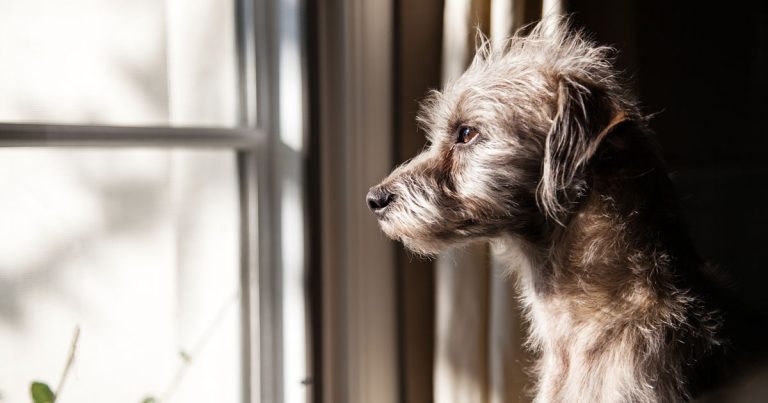28 Feb 2023
Dogs Trust-funded work, led by vet school and the School of Physiology, Pharmacology and Neuroscience at University of Bristol, will look at how dogs respond to pheromones when left alone.

Image © adogslifephoto / Adobe Stock
Researchers are looking for participants for a study in separation anxiety in dogs.
A Dogs Trust study involving two departments at the University of Bristol will investigate how dogs respond to pheromones when left alone and whether they can help improve separation anxiety in dogs.
The increase in owners forced to stay at home during the COVID-19 pandemic is thought to have exacerbated problems in separation anxiety, with some animals going on to display unwanted and sometimes destructive behaviours.
Participants in the research study, which is being led by Bristol Veterinary School, and the School of Physiology, Pharmacology and Neuroscience, would have a diffuser-type device in their home for up to eight weeks. A researcher will visit every fortnight to carry out in-house observations.
To be eligible, dogs and owners should meet the following criteria:
Ilana Kelland – specialist technician in the School of Physiology, Pharmacology and Neuroscience, who is leading the study – said: “Some dogs can find being left on their own an overwhelming and stressful experience.
“Our study is hoping to find out if the pheromone diffuser being used in a home environment can ease separation anxiety in dogs.”
Stephanie Miller – who is participating in the study with her dog, Cyril – said: “I jumped at the chance to take part in the study as Cyril has had separation anxiety since he was a puppy. Although I have tried lots of things to help him, he can’t be left alone as he gets very distressed.
“The researchers have clearly explained every step of the study and we’ve enjoyed taking part in the research project. It’s also a great opportunity to be involved in research that could potentially help other dogs and their owners, too.”
Vets with owners who may be interested in the study can direct them to email Ilana Kelland.